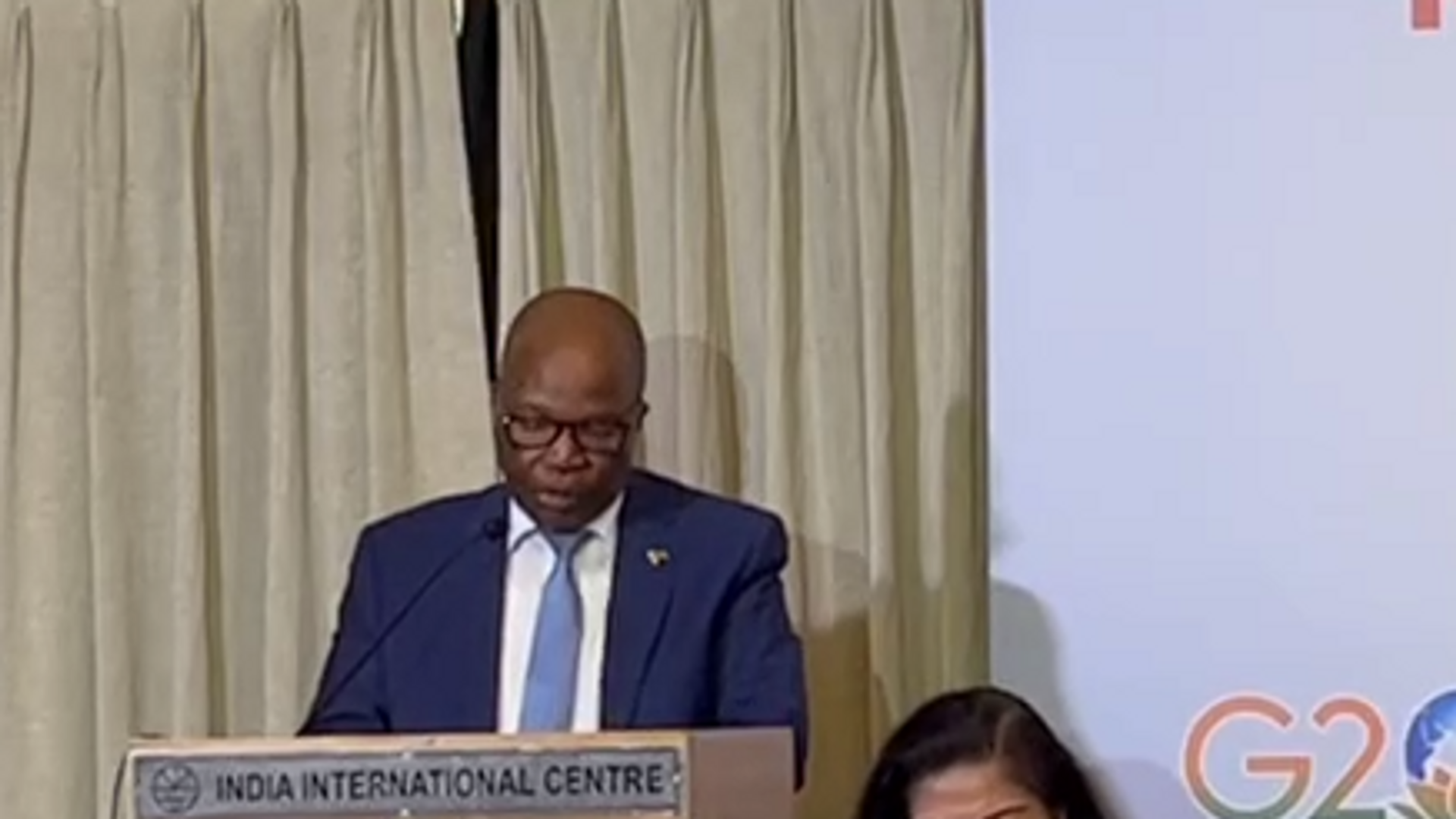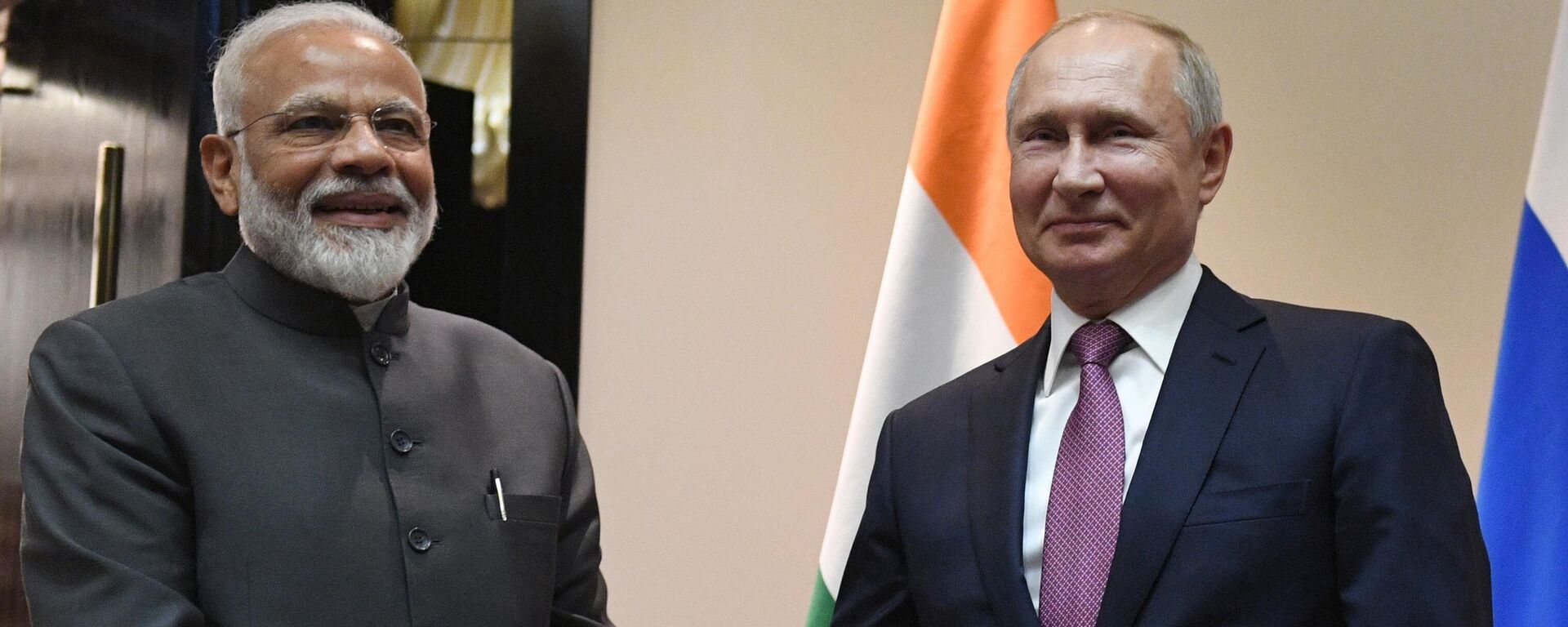https://sputniknews.in/20230914/power-moving-away-from-us-to-developing-nations-south-african-envoy-to-india-4250354.html
Power Moving Away from US to Developing Nations: South African Envoy to India
Power Moving Away from US to Developing Nations: South African Envoy to India
Sputnik India
The induction of African Union (AU) as a full-fledged G20 member and a consensus on the joint communique have been the most notable outcomes of the G20 Summit in New Delhi last week.
2023-09-14T21:02+0530
2023-09-14T21:02+0530
2023-09-15T11:03+0530
world news
india
ukraine
south africa
african union
g-20
nato
russia
china
us
https://cdn1.img.sputniknews.in/img/07e7/09/0e/4251671_0:31:437:277_1920x0_80_0_0_b50b55cccf9d5af4ced3fc7eea30d91a.png
The induction of African Union (AU) as a full-fledged G-20 member and a consensus on the joint communique have been the most notable outcomes of the G-20 Summit in New Delhi last week.Sputnik India spoke to South African High Commissioner to India Sibusiso Ndebele on the margins of an event on India's G-20 presidency at New Delhi's India International Centre (IIC).Sputnik India: How do you view African Union benefiting from its G-20 membership?High Commissioner Sibusiso Ndebele: Practically, the AU, since its formation, has been outside of where the real decisions are made, whether it is the United Nations Security Council or whether it is G-20… Where serious economic decisions that affect Africa are made.Sputnik India: India has said that the post-pandemic order must be different from the world before. You also just mentioned in your introductory remarks about the unending UN reforms which haven’t taken place and that’s why more developing countries are looking up to organizations such as BRICS and G-20.So, is the hegemony of rich countries finally coming to an end and are we finally moving towards a multipolar world order?Ndebele: Well… How big powers cease being big is not something that’s sorted on mountain tops.With the end of the British empire, power moved smoothly towards America in a way which hadn’t been perceptible. Now, the power is moving away from America to somewhere else. But it is not moving towards one power now. It is moving towards the developing world.And that developing world is not going to use that power to oppress anybody. The developing world comes to the table with a history of not having ever conquered or oppressing anybody. It is not in their DNA.For the developing nations, development means to have food, education, housing and peace.Sputnik India: G-20 Summit Declaration calls for a “comprehensive, just and durable peace” in Ukraine and respecting all the principles of the UN Charter.A lot has been said about Russia shouldn’t have done what it has done. But what role do you see for Ukraine and NATO in bringing the conflict to an end? Because Ukraine has refused to come to the negotiating table altogether.Ndebele: I think what South Africa emphasizes is that there no problems which can be solved without talking. It doesn’t matter how much differences you have. The fact of the matter is that you to talk in the end.So, if you have to talk in the end, why don’t you talk before so many lives are lost. Sputnik India: What role could the developing countries such as South Africa and India play in bringing about an end to the conflict?Ndebele: The difference is that G7 countries are big countries. That’s an advantage but they also come with all their arms and hard power.We believe that if even five percent of the expenditure was incurred on development needs that what the countries are spending on arms, then things would have been much different.You shout about $100 billion that’s being given (from the developed countries to developing countries for climate finance). But that’s only on paper. But when it comes to arms, piles and piles of arms are being given.So, the South wants the focus to shift on development and creating a much more humane world.(In 2010, the developed countries had pledged to reach the goal of $100 billion per year to developing nations for climate finance by 2020. The New Delhi Summit Declaration states that the “developed country contributors expect this goal to be met for the first time in 2023”)
https://sputniknews.in/20230913/russia-is-reliable-partner-for-global-south-ex-indian-envoy-says-4226914.html
india
ukraine
south africa
russia
china
us
Sputnik India
feedback.hindi@sputniknews.com
+74956456601
MIA „Rossiya Segodnya“
2023
Dhairya Maheshwari
https://cdn1.img.sputniknews.in/img/07e6/0c/13/138962_0:0:641:640_100x100_80_0_0_2cb44360dbcdf6d84bf4b299cd045917.jpg
Dhairya Maheshwari
https://cdn1.img.sputniknews.in/img/07e6/0c/13/138962_0:0:641:640_100x100_80_0_0_2cb44360dbcdf6d84bf4b299cd045917.jpg
News
en_IN
Sputnik India
feedback.hindi@sputniknews.com
+74956456601
MIA „Rossiya Segodnya“
Sputnik India
feedback.hindi@sputniknews.com
+74956456601
MIA „Rossiya Segodnya“
Dhairya Maheshwari
https://cdn1.img.sputniknews.in/img/07e6/0c/13/138962_0:0:641:640_100x100_80_0_0_2cb44360dbcdf6d84bf4b299cd045917.jpg
african union, african union g20 member, south africa news, global south, global south summit, global south countries, russia ukraine news, russia ukraine war, russia ukraine update, ukraine conflict, africa news, india news, modi news, climate finance, rich countries, brics, brics expansion, brics countries, un reforms ukraine-russia war, ukraine russia, ukraine latest
african union, african union g20 member, south africa news, global south, global south summit, global south countries, russia ukraine news, russia ukraine war, russia ukraine update, ukraine conflict, africa news, india news, modi news, climate finance, rich countries, brics, brics expansion, brics countries, un reforms ukraine-russia war, ukraine russia, ukraine latest
Power Moving Away from US to Developing Nations: South African Envoy to India
21:02 14.09.2023 (Updated: 11:03 15.09.2023) Exclusive
South Africa, along with India, Indonesia and Brazil, played a key role in successfully negotiating the New Delhi G-20 Summit Declaration amid differences over Ukraine.
The induction of African Union (AU) as a full-fledged G-20 member and a consensus on the joint communique have been the most notable outcomes of the G-20 Summit in New Delhi last week.
Sputnik India spoke to
South African High Commissioner to India Sibusiso Ndebele on the margins of an event on
India's G-20 presidency at New Delhi's India International Centre (IIC).
Sputnik India: How do you view African Union benefiting from its G-20 membership?
High Commissioner Sibusiso Ndebele: Practically, the AU, since its formation, has been outside of where the real decisions are made, whether it is the United Nations Security Council or whether it is G-20… Where serious economic decisions that affect Africa are made.
For the first time in Delhi, the AU is going to be a part and parcel of G-20. Therefore, it is different when one talks from inside as compared to talking from outside… And fighting each agenda item in relations to development needs of African nations.
Sputnik India: India has said that the post-pandemic order must be different from the world before. You also just mentioned in your introductory remarks about the unending UN reforms which haven’t taken place and that’s why more developing countries are looking up to organizations such as BRICS and G-20.
So, is the hegemony of rich countries finally coming to an end and are we finally moving towards a multipolar world order?
Ndebele: Well… How big powers cease being big is not something that’s sorted on mountain tops.
With the end of the British empire, power moved smoothly towards America in a way which hadn’t been perceptible.
Now, the power is moving away from America to somewhere else. But it is not moving towards one power now. It is
moving towards the developing world.And that developing world is not going to use that power to oppress anybody. The developing world comes to the table with a history of not having ever conquered or oppressing anybody. It is not in their DNA.
For the developing nations, development means to have food, education, housing and peace.
Sputnik India: G-20 Summit Declaration calls for a “comprehensive, just and durable peace” in Ukraine and respecting all the principles of the UN Charter.
A lot has been said about Russia shouldn’t have done what it has done. But what role do you see for Ukraine and NATO in bringing the conflict to an end? Because Ukraine has refused to come to the negotiating table altogether.
Ndebele: I think what South Africa emphasizes is that there no problems which can be solved without talking. It doesn’t matter how much differences you have. The fact of the matter is that you to talk in the end.
So, if you have to talk in the end, why don’t you talk before so many lives are lost.
We are hopeful that the world is moving towards that position, which is that Ukraine and Russia must talk so that the problem becomes a part of our past. It would be a very painful past but at least it won’t be part of our present.
Sputnik India: What role could the developing countries such as South Africa and India play in bringing about an end to the conflict?
Ndebele: The difference is that G7 countries are big countries. That’s an advantage but they also come with all their arms and hard power.
The (Global) South comes with its humanity. At the end of the day, we are human. We can’t finish each other. So, what’s the point of war and why not just end it?
We believe that if even five percent of the expenditure was incurred on development needs that what the countries are spending on arms, then things would have been much different.
You shout about $100 billion that’s being given (from the developed countries to developing countries for climate finance). But that’s only on paper. But when it comes to arms, piles and piles of arms are being given.
So, the South wants the focus to shift on development and creating a much more humane world.
(In 2010, the developed countries had pledged to reach the goal of $100 billion per year to developing nations for climate finance by 2020. The New Delhi Summit Declaration states that the “developed country contributors expect this goal to be met for the first time in 2023”)



